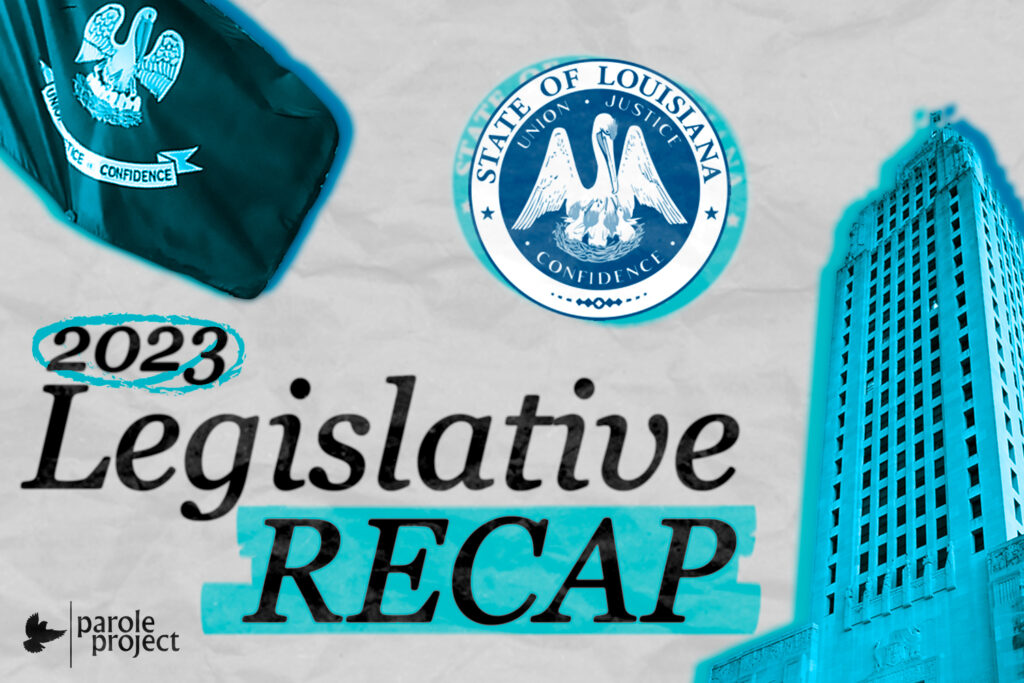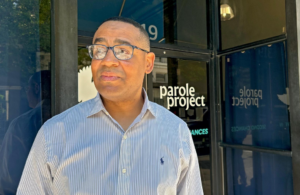New Laws Expand Second Chance Opportunities
Parole Project worked with legislators on several bills this session, providing context and advocating for new reforms to expand second chance opportunities. In total, we helped win approval for three bills and stymie several pieces of legislation that would have been regressive.
Carried by State Representative Barbara Freiberg (R – District 70), Act 276 (formerly HB 444) amended the existing education standards for parole hearing eligibility. Act 276 is significant in that it expands eligibility beyond a high school equivalency diploma to include an adult literacy program, adult basic education program, or job skills training program for hearing eligibility. This is particularly important to persons who, when then entered prison decades ago, were denied access to many educational program due to their sentences. The revised law also creates a path for those with cognitive disabilities or other learning barriers to earn the opportunity for release. Prior to this change certain individuals who could not pass the high school equivalency test would be barred from parole eligibility despite having displayed rehabilitation in all other aspects of their life. With the passage of Act 276, we celebrate the Legislature’s understanding that justice policy is more than a “one size fits all” approach.
Parole Project will be represented on two task forces to study incarceration and sentencing practices, and long-term issues that affect formerly incarcerated individuals. State Senator Mark Abraham (R – District 25), filed SB 112 which became Senate Concurrent Resolution 45. This resolution creates a task force that will study, examine, and recommend changes to sentencing practices related to second degree murder. Currently, Louisiana law mandates life without parole for anyone age 18 or over convicted of second degree murder. It is one reason Louisiana has the nation’s highest per capita life without parole rate and more people serving life without parole than Texas, Arkansas, Mississippi, and Alabama combined. SCR 45 is the first step in making informed, fact-based adjustments to Louisiana’s sentencing scheme. The Task Force on Sentencing for Second Degree Murder will be a 10-person panel comprised of representatives from the criminal legal system, corrections system, and reentry practicioners. State Representative Alonzo Knox (D – District 93) authored House Resolution 270 which establishes the 17-person Task Force on Juvenile Offender Policies to study juveniles sentenced as adults, the scope and availability of rehabilitation programming while in prison, and relevant parole policies to make policy recommendations regarding how we treat individuals who commit offenses when they are juveniles. Over the next year, these two committees will work to analyze the historical data, current research, and anecdotal evidence of Louisiana’s sentencing and corrections policy. At the end of their yearlong studies, the task forces will make their final recommendations for legislative proposals that may lead to changes in Louisiana’s second degree murder sentencing, juvenile incarceration, and overall criminal justice reforms. We are looking forward to contributing to these studies and playing a direct role in the conversation about creating more equitable justice system.
Unfortunately, not all of our efforts made it to final passage. In addition to other bills, we worked with legislators to introduce a bill that would have affected parole eligibility for the state’s longest serving prisoners. In 2022, we were successful in passing legislation that provided parole eligibility to what is knows as 10/6 lifers. But the scope of what became Act 544 was limited to those who pleaded guilty affecting about 20 people. This session we helped introduce a bill that would have given parole eligibility to eight more 10/6 lifers who chose their right to trial. However, a hostile political atmosphere filled with talking point narratives prevented passage out of committee. Despite this disappointment, we will continue advocating for this group, who were originally promised they would serve 10 years and six months and who now have all been incarcerated more than 50 years, to have an opportunity for freedom.
We also worked to provide context on some pieces of legislation that we believed would be harmful to justice reform and people experiencing incarceration. Some of these bills would have changed how disciplinary infractions impact “good time” earned, lowered the age limit for juveniles to be tried as adults, and affected how Justice Reinvestment funding is allocated for reentry services. Thankfully these bills, which would have exacerbated Louisiana’s mass incarceration problem, did not become law.
Apart from our policy efforts, we would like to highlight legislation that impacts the justice system as a whole. While our organization has a focused mission and scope, we recognize that positive change goes beyone just our relevant policy victories. State Senator Royce Duplessis (D – District 5) worked with the Justice and Accountability Center to author and pass SB 111, also known as the “New Endings and Opportunities Act.” Impacting approximately 1.3 million Louisianians, this act provides a simplified path for individuals who are eligible for the expungement of non-violent offenses from their records. The bill will provide system upgrades to streamline and automate the expungement process, enhance communication between various departments, and eliminate the filing costs associated with expungement applications. The adoption of this law demonstrates a commitment to improve opportunities for system impacted persons who are rebuilding their lives and creates a more inclusive society.
We believe our successful reentry work has built faith in formerly incarcerated people and positioned us to weigh in on these issues as our clients demonstrate their successes. We are thrilled to have played a part in the passage of meaningful legislation and are grateful for the opportunity to work with our elected officials to create a more equitable society and that believes in second chances.




